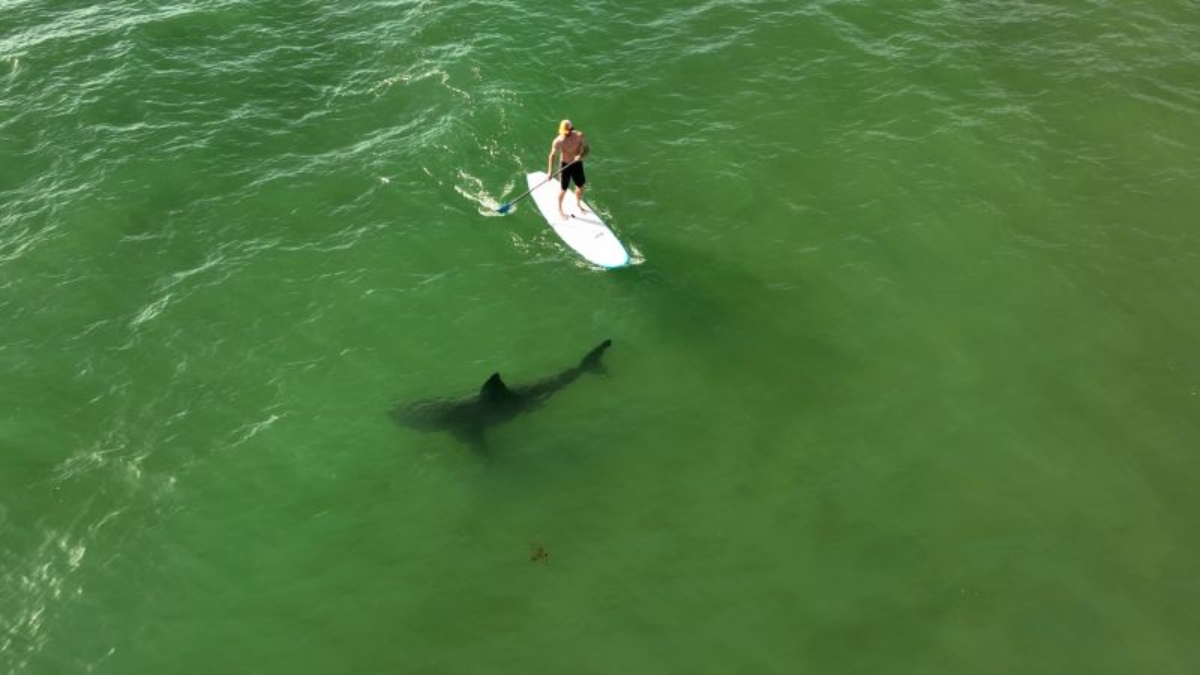Shark Populations Slowly Recovering off the Coast of the United States, Experts Say
As summer heats up, shark sightings and interactions with humans are making national headlines once again. While these incidents may be alarming for some, experts believe that they are a sign of a positive development – the slow recovery of shark populations off the coast of the United States.
Conservation efforts over the past few decades have contributed to the resurgence of sharks in American waters. Until the late 1960s, shark numbers remained relatively stable before they started declining rapidly due to overfishing, habitat destruction, and declining prey populations. However, in recent years, there have been indications of an upward trend.
“The sharks are coming back. Their numbers are growing,” says Bob Hueter, chief scientist at OCEARCH, a nonprofit organization dedicated to ocean research and education. While the current population is still far from what it was in the 1940s and 1950s, there is a definite positive shift occurring.
One of the key milestones in shark conservation was the 1993 Atlantic Ocean Shark Fishery Management Plan, which imposed restrictions on all US federal Atlantic shark fisheries. It also banned the practice of finning, where sharks are hunted solely for their fins. Additionally, the establishment of protected areas and the prohibition of possession and sale of certain shark species have helped in restoring their populations.
The recovery of shark populations is not exclusive to the United States. However, it should be noted that globally, sharks remain under significant threat. According to a 2021 study, more than a third of sharks, rays, and chimaeras are threatened with extinction, and overfishing is still a major issue in many parts of the world.
Estimating shark populations is a challenging task due to limited data and varying methodologies. Tagging and collecting information from fishermen have their limitations, as some sharks may be more easily tagged or reported due to their behavior or the preferences of fishermen. However, lifeguards, pilots, and other observers play a crucial role in monitoring shark activity and providing valuable insights.
Despite the increase in shark populations and the rising number of Americans visiting beaches, the rate of unprovoked shark bites has not increased significantly. Last year, there was a tie with 2020 for the lowest number of incidents in the past decade. Experts emphasize that the risk of being bitten by a shark remains incredibly low, with chances estimated at 1 in over 3 million.
To coexist peacefully with sharks, experts stress the importance of information and awareness. Drones, like the ones deployed on New York beaches, can be valuable tools for informing beach-goers about the presence of sharks. Staying in clear water, avoiding areas with poor visibility, and watching out for signs of fish activity can also help prevent accidents.
“We have to change the way we use the ocean because we have spent 50 years in which the oceans are not what they should be, with fewer sharks, fewer fish,” says Hueter. As efforts to restore ocean ecosystems continue, it is essential for people to adapt their understanding and take necessary precautions, just as they would when entering an area with bears or pumas in a national park.
Ultimately, experts encourage a shift in perspective – from fearing sharks to appreciating their presence from a safe distance. With the right knowledge and precautions, humans and sharks can coexist harmoniously, allowing these magnificent creatures to thrive once again.
